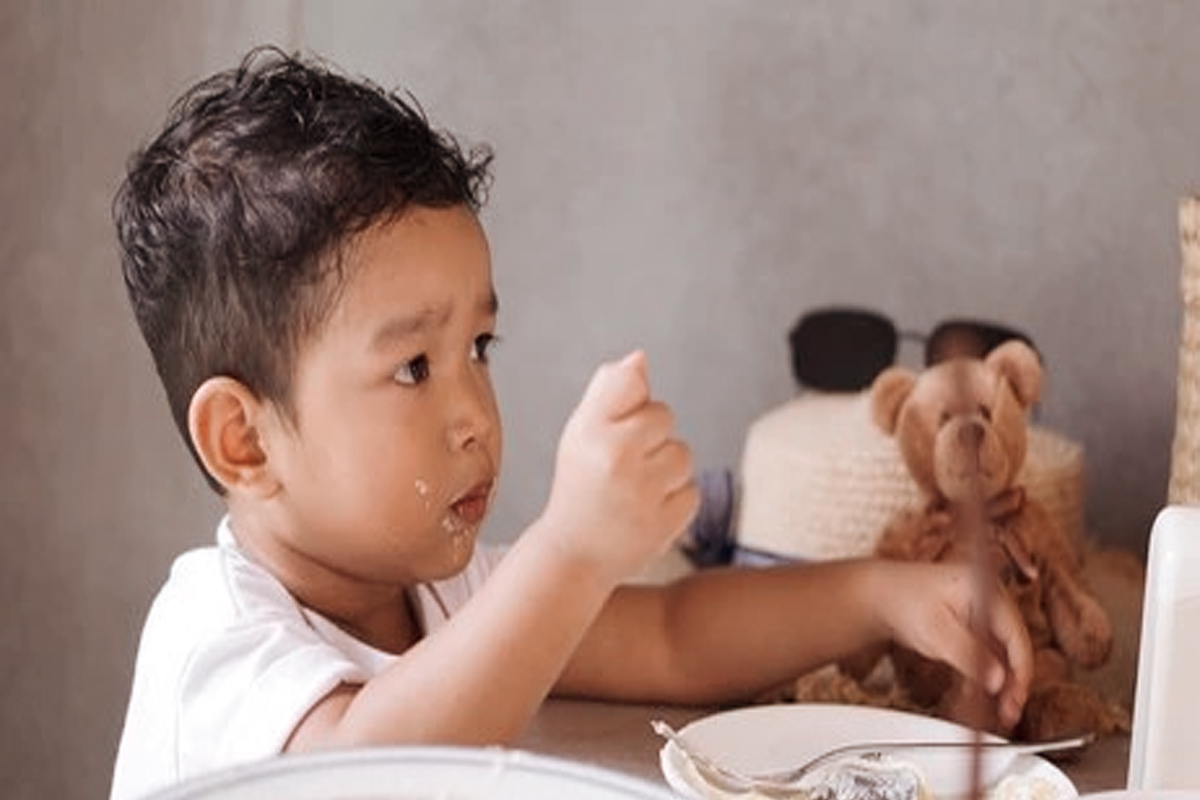A baby’s development at the 9-month mark is exciting and filled with milestones. Most infants are becoming more mobile, perhaps crawling or scooting. They may be pulling themselves up, showing signs of standing. Communication skills are evolving too, with babbling and maybe even saying a few simple words. Introducing a variety of nutritious foods helps support their growth. Keep fostering a safe environment, encourage exploration, and cherish these moments as your little one continues to discover the world around them. Regular check-ups with the pediatrician ensure that your baby is thriving and meeting developmental milestones.
Table of Contents
ToggleWhat are the Baby’s Development and Milestones on the 9th Month
The ninth month of your baby’s development is an exciting period marked by significant milestones and burgeoning independence. As your little one approaches their first year, you can anticipate the following developments:
Physical Mobility
- Many babies begin to master the art of crawling during this month, exploring their surroundings with newfound mobility.
- Some may even pull themselves up to a standing position, showcasing the early stages of standing and cruising along furniture.
Fine Motor Skills
- Your baby’s grasp becomes more refined, enabling them to pick up small objects using their thumb and forefinger.
- Encourage their fine motor skills by providing safe, age-appropriate toys for exploration.
Communication Skills
- Babbling becomes more intentional and may include repeated syllables, mimicking simple words.
- Respond enthusiastically to your baby’s attempts at communication, fostering language development.
Social Interaction
- Your baby’s social skills blossom as they become more aware of others.
- They may show affection through gestures like hugging or waving, displaying the early signs of social engagement.
Exploration and Curiosity
- The ninth month is characterized by heightened curiosity, with your baby eager to explore their environment.
- Provide a safe and stimulating space for exploration, encouraging their natural curiosity.
Feeding Independence
- Introduce finger foods and encourage self-feeding to enhance your baby’s independence during meals.
- Offer a variety of textures and flavors to support their developing palate.
Teething Signs
- Teething symptoms might become more noticeable, with the emergence of new teeth causing discomfort.
- Provide teething toys or soothing methods recommended by your pediatrician.
Cognitive Milestones
- Cognitive development advances as your baby becomes adept at problem-solving, such as finding hidden objects.
- Foster cognitive growth through interactive games and activities.
What are the activities needed to Support your 9-month-old baby’s development
Crawling on various surfaces
- Encourage your baby to crawl on different surfaces to develop their motor skills and body awareness
Messy play
- Engage your baby in messy play activities, such as playing with Jell-O or finger painting, to help them explore textures and develop their senses
Grab and drop
- Provide opportunities for your baby to practice grasping and dropping objects, which helps develop their fine motor skills
Music
- Play music for your baby and engage them in sing-along games or dancing to help develop their auditory skills and coordination
Introduce utensils
- Offer your baby age-appropriate utensils and let them practice eating with their fingers to develop their motor skills
Tunnel play
- Set up a tunnel with pillows or other soft objects for your baby to crawl through, which helps develop their motor skills and sense of space
How Much Sleep Does Your 9-Month-Old Baby Need
Nighttime Sleep
- Most 9-month-olds need about 11 to 12 hours of sleep at night.
- Establish a consistent bedtime routine to help signal to your baby that it’s time to wind down.
Naps
- Your baby may take two naps during the day, each ranging from 1 to 2 hours.
- Aim for a morning nap and an afternoon nap to maintain a balanced sleep schedule.
Transitioning to One Nap
- Some babies may start transitioning to one longer nap during the day around this age.
- Pay attention to your baby’s cues and adjust the nap schedule accordingly.
How to Feed Your 9-Month-Old Baby
Meal Schedule
- Aim for three meals a day, with additional snacks as needed.
- Establish a routine to help your baby anticipate and enjoy mealtime.
Encouraging Self-Feeding
- Provide small, safe utensils for your baby to explore and use during meals.
- Let them practice feeding themselves to enhance motor skills and foster independence.
Healthy Snacking
- Introduce nutritious snacks like yogurt, cheese cubes, or small pieces of fruit.
- Be mindful of choking hazards and cut foods into bite-sized pieces.
Hydration
- Offer water in a sippy cup during meals and throughout the day to promote hydration.
- Limit fruit juices and avoid sugary drinks.
Respecting Preferences
- Pay attention to your baby’s likes and dislikes.
- Respect their cues for hunger and fullness; avoid pressuring them to eat.
Supervision and Safety
- Always supervise your baby during meals to prevent choking.
- Ensure they are seated in an upright position in a high chair for safety.
Day in the Life of a 9-Month-Old Baby
Feeding
- Baby may consume around ¼ to ½ cup of grains, fruit, and veggies each day
- Typically eat every 2-4 hours, including formula, breast milk, and solid food meals
Sleeping
- 10-12 hours at night
- 2 naps during the day
Bathing
- Typically needs to be bathed about 3 times a week
- Water temperature is around 100°F (37.8°C)
Changing Diapers
- Babies at this age may need to be changed around 6 to 8 times a day, depending on their bowel movements and urination
- When changing your baby’s diaper, it’s important to use mild soap, baby shampoo, and scent- and alcohol-free soap to prevent skin irritation
Playing
- Provide your baby with containers of different sizes and shapes to help them develop their fine motor skills
- Set up a tunnel with pillows or other soft objects for your baby to crawl through, which helps develop their motor skills and sense of space
Fun Facts
- Your baby may show shyness or fear of strangers, and they may be clingy with familiar adults
- Your baby may begin to understand more words and use simple gestures to communicate
Baby’s Health at 9-Month-Old
Nutritious Diet
- Continue providing a balanced diet that includes a variety of fruits, vegetables, grains, and proteins. Introduce new textures and flavors to expand their palate.
Hydration
- Offer water in a sippy cup during meals to keep your baby well-hydrated. Be mindful of their cues for thirst.
Dental Care
- Continue brushing your baby’s teeth with a soft-bristled toothbrush and fluoride-free toothpaste. Schedule a dental checkup if you haven’t already.
Vaccinations
- Stay updated on your baby’s vaccination schedule. Regular immunizations are vital for protecting against preventable diseases.
Regular Check-ups
- Schedule routine well-baby visits with the pediatrician. These appointments allow for monitoring growth, addressing concerns, and receiving guidance on age-appropriate care.
Hygiene Practices
- Encourage good hygiene habits, including regular handwashing, to prevent the spread of germs. Keep baby supplies clean and sanitized.
Exploration and Play
- Support your baby’s curiosity and development through age-appropriate toys and activities. Supervised playtime enhances motor skills and cognitive abilities.
Items Needed on the 9th Month of Your Baby
Baby Utensils and Plates
- Introduce baby-friendly utensils and plates to encourage self-feeding. Opt for materials that are safe for your baby to handle.
Walking Assistance Gear
- If your baby is showing signs of standing or cruising, consider a walker or push toy to support their early attempts at walking.
Developmental Toys
- Choose toys that stimulate cognitive development and fine motor skills. Items like stacking cups, building blocks, and interactive toys are excellent choices.
Soft-Bristled Toothbrush
- Begin or continue with dental care by using a soft-bristled baby toothbrush and fluoride-free toothpaste. Establish a gentle teeth-cleaning routine.
Clothing for Changing Seasons
- Update your baby’s wardrobe to accommodate changing weather. Ensure you have a mix of comfortable onesies, sleepers, and weather-appropriate outfits.
Sippy Cups and Open Cups
- Encourage independent drinking with sippy cups or open cups suitable for your baby’s developmental stage.
First Shoes
- If your baby is starting to stand or take a few steps, consider getting their first pair of soft-soled shoes for protection and support.
Life as a Parent on Baby’s 9th Month
Embarking on the ninth month of your baby’s journey is a remarkable experience. As a parent, you’re witnessing rapid growth and delightful milestones. Let’s delve into the adventures of parenthood during this exciting phase.
Discovering New Horizons
- Your little one is on a quest for exploration. From crawling to standing, every day brings a discovery. Encourage their curiosity by creating a safe environment with stimulating toys.
Culinary Adventures
- Introducing solid foods is a significant step. Experiment with a variety of textures and flavors to stimulate your baby’s taste buds. This is an ideal time to foster healthy eating habits.
Sleep Challenges
- Sleep patterns may fluctuate during this period. Establish a calming bedtime routine to help your baby transition into a restful night’s sleep. Patience is key as you navigate any sleep-related challenges.
Communication Milestones
- Your baby is becoming more expressive. Foster language development through reading and talking to them. Respond to their babbling with enthusiasm, laying the foundation for future communication skills.
Social Bonds
- Encourage social interaction with playdates and outings. These experiences contribute to emotional development and help your baby form connections with others.
Health and Safety
- As your baby becomes more mobile, ensure a secure environment. Baby-proofing the house becomes crucial, minimizing potential hazards.
Checklist for the 9th Month of Your Baby
As your baby reaches the ninth month, numerous exciting developments unfold. Here’s a checklist to help you navigate and celebrate this stage of your baby’s growth.
Motor Skills
- Standing with support or while holding onto furniture.
- Possibly taking a few steps while holding onto something for balance.
Language Development
- Babbling with more varied sounds and attempting to imitate words.
- Responding to simple commands or requests with gestures.
Social and Emotional Growth
- Expressing a range of emotions, including joy, frustration, and affection.
- Developing a sense of object permanence, understanding that things exist even when out of sight.
Exploration and Curiosity
- Showing increased curiosity about their surroundings.
- Engaging in simple problem-solving activities and exploring objects with increased dexterity.
Safety Measures
- Baby-proofing the home for increased mobility.
- Ensuring that hazardous items are out of reach and electrical outlets are covered.
Dental Care
- The appearance of the first teeth may begin; initiate a gentle oral care routine.
- Introduce a soft-bristled toothbrush and consider scheduling a first dental checkup.
Immunizations
- Check with your pediatrician to ensure that your baby’s vaccinations are up-to-date.
Play and Bonding
- Encourage interactive play to foster cognitive and social development.
- Read to your baby regularly to stimulate language skills.
Last Updated on January 15, 2024
Written By
With a solid foundation in family dynamics, child development, and a knack for assessing products, our content is built on a strong grasp of our topics. We use trustworthy sources, seek advice from experts, and stay current with the latest happenings in our fields. We always give credit to our sources, reveal any possible conflicts of interest, and deliver info in a truthful and unbiased way. Follow us on Facebook or join our Facebook Group.
Start your journey to confident parenting
Join over 2,000+ parents who receive free practical advice and tips from Joyful PH. Unsubscribe anytime.
You may also like
Toddler’s Development and Milestones at 24th Month
A two-year-old's growth and achievements at 24 months are remarkable. Toddlers…
Toddler’s Development and Milestones at 23rd Month
In the 23rd month, toddlers exhibit significant developmental strides. Their…
Toddler’s Development and Milestones at 22nd Month
At 22 months, toddlers make strides in independence, speech, and motor skills.…
Toddler’s Development and Milestones at 21st Month
During the 21st month, toddlers continue their dynamic development. Language…
Toddler’s Development and Milestones at 20th Month
At 20 months, toddlers exhibit remarkable progress. Their language skills…
Toddler’s Development and Milestones at 19th Month
A toddler at 19 months undergoes significant development. Language skills…







